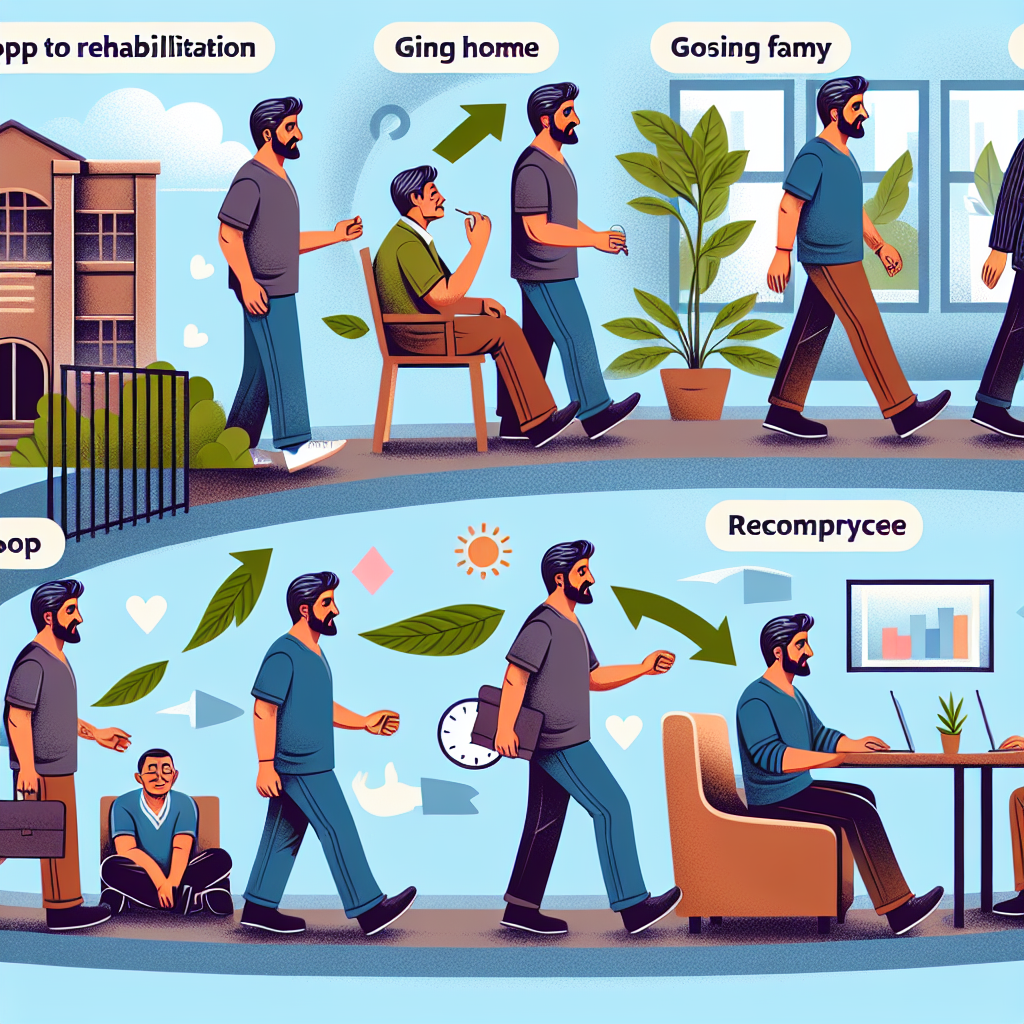-
Table of Contents
“Empower Recovery: Master Triggers, Prevent Relapse.”
Introduction
Managing triggers and preventing relapse in cocaine addiction are critical components of the recovery process. Triggers, which can be internal or external cues that lead to cravings, play a significant role in the cycle of addiction. Effective management involves identifying these triggers, developing coping strategies, and creating a supportive environment to mitigate their impact. Preventing relapse requires a comprehensive approach that includes behavioral therapies, support groups, and sometimes medication-assisted treatment. By understanding the underlying causes of addiction and implementing structured relapse prevention plans, individuals can enhance their resilience and maintain long-term sobriety.
Identifying Personal Triggers in Cocaine Addiction Recovery
In the journey of cocaine addiction recovery, identifying personal triggers is a crucial step towards managing and preventing relapse. Triggers are specific people, places, emotions, or situations that can provoke cravings and lead to a return to substance use. Recognizing these triggers is not only about understanding what they are but also about developing strategies to cope with them effectively. This process requires introspection, honesty, and a commitment to change, but it is entirely achievable with the right mindset and support.
One of the first steps in identifying personal triggers is to reflect on past experiences. Think about the times when you felt the strongest urge to use cocaine. Was it during moments of stress, boredom, or celebration? Did certain social settings or interactions with specific individuals make you more vulnerable? By examining these patterns, you can start to pinpoint the circumstances that put you at risk. Keeping a journal can be particularly helpful in this regard, as it allows you to document your thoughts and feelings, making it easier to identify recurring themes.
In addition to self-reflection, seeking feedback from trusted friends, family members, or therapists can provide valuable insights. These individuals can offer an outside perspective and may notice triggers that you might overlook. Their observations can help you build a more comprehensive understanding of your vulnerabilities. Moreover, engaging in open and honest conversations about your triggers can strengthen your support network, making it easier to reach out for help when needed.
Once you have identified your triggers, the next step is to develop coping strategies. This involves creating a plan to manage your responses to these triggers in a healthy and constructive manner. For instance, if stress is a significant trigger, consider incorporating stress-reduction techniques such as mindfulness meditation, exercise, or deep-breathing exercises into your daily routine. If certain social situations are problematic, it might be necessary to avoid them altogether or attend with a supportive friend who can help you stay accountable.
Another effective strategy is to replace negative behaviors with positive ones. Instead of turning to cocaine when faced with a trigger, find alternative activities that bring you joy and fulfillment. This could be anything from pursuing a hobby, spending time with loved ones, or volunteering for a cause you care about. By filling your life with positive experiences, you can reduce the power of triggers and create a more balanced and satisfying lifestyle.
It is also important to recognize that managing triggers is an ongoing process. As you progress in your recovery, new triggers may emerge, and old ones may resurface. Staying vigilant and adaptable is key. Regularly reassessing your triggers and coping strategies can help you stay ahead of potential challenges. Additionally, continuing to seek support from therapy groups, counselors, or recovery programs can provide ongoing guidance and encouragement.
Ultimately, identifying and managing personal triggers is a vital component of preventing relapse in cocaine addiction recovery. It requires a proactive approach, a willingness to learn from past experiences, and a commitment to personal growth. By taking these steps, you can build a stronger foundation for your recovery and move forward with confidence and resilience. Remember, every effort you make towards understanding and managing your triggers brings you one step closer to a healthier, drug-free life.
Effective Coping Strategies to Prevent Relapse
Managing triggers and preventing relapse in cocaine addiction is a multifaceted challenge that requires a combination of self-awareness, support systems, and effective coping strategies. Understanding the nature of triggers is the first step in this journey. Triggers can be internal, such as emotions and thoughts, or external, like people, places, and situations that remind an individual of their past drug use. Recognizing these triggers is crucial because it allows individuals to anticipate and prepare for potential relapse scenarios.
One effective coping strategy is the development of a robust support network. Surrounding oneself with supportive friends, family, and professionals can provide the encouragement and accountability needed to stay on track. Support groups, such as Narcotics Anonymous, offer a sense of community and shared experience that can be incredibly empowering. These groups provide a safe space to discuss challenges and successes, fostering a sense of belonging and understanding.
In addition to external support, internal coping mechanisms are equally important. Mindfulness and meditation practices can help individuals stay grounded and present, reducing the impact of stress and anxiety, which are common relapse triggers. By focusing on the present moment, individuals can better manage their emotional responses and make more conscious decisions. Regular physical activity is another powerful tool. Exercise releases endorphins, which can improve mood and reduce cravings. It also provides a healthy outlet for stress and can help establish a routine, which is beneficial for maintaining sobriety.
Cognitive-behavioral therapy (CBT) is another effective strategy for managing triggers and preventing relapse. CBT helps individuals identify and change negative thought patterns and behaviors associated with drug use. By developing healthier ways of thinking and coping, individuals can reduce the likelihood of relapse. This therapeutic approach also equips individuals with practical skills for dealing with high-risk situations, such as problem-solving and assertiveness training.
Creating a structured daily routine can also be a significant deterrent to relapse. A well-organized schedule reduces idle time, which can often lead to boredom and temptation. Incorporating activities that promote well-being, such as hobbies, social engagements, and volunteer work, can provide a sense of purpose and fulfillment. This sense of purpose is vital for long-term recovery, as it shifts the focus from the addiction to positive and meaningful pursuits.
Nutrition and sleep are often overlooked but are critical components of recovery. A balanced diet and adequate rest can improve overall health and well-being, making it easier to cope with stress and resist cravings. Proper nutrition supports brain function and emotional stability, while good sleep hygiene ensures that the body and mind are well-rested and resilient.
Lastly, it is essential to celebrate milestones and progress, no matter how small. Acknowledging achievements reinforces the commitment to sobriety and boosts self-esteem. Setting short-term and long-term goals can provide motivation and a sense of direction. Each step forward, no matter how minor, is a testament to the individual’s strength and determination.
In conclusion, managing triggers and preventing relapse in cocaine addiction requires a comprehensive approach that includes external support, internal coping mechanisms, structured routines, and self-care. By employing these strategies, individuals can build a resilient foundation for long-term recovery. The journey may be challenging, but with perseverance and the right tools, it is entirely possible to lead a fulfilling and drug-free life.
Building a Strong Support Network for Long-Term Sobriety
Building a strong support network is crucial for individuals striving to maintain long-term sobriety from cocaine addiction. The journey to recovery is often fraught with challenges, and having a reliable support system can make a significant difference in managing triggers and preventing relapse. One of the first steps in creating this network is to identify and connect with people who genuinely care about your well-being. These individuals can include family members, close friends, and even colleagues who understand your struggle and are committed to helping you stay on track.
In addition to personal connections, joining support groups can provide an invaluable sense of community and shared experience. Groups such as Narcotics Anonymous (NA) offer a safe space where individuals can share their stories, gain insights from others who have faced similar challenges, and receive encouragement. The sense of belonging that comes from being part of a group can be incredibly empowering, helping to reinforce the commitment to sobriety. Moreover, these groups often provide practical advice on coping strategies and relapse prevention techniques, which can be instrumental in navigating the complexities of recovery.
Professional support is another critical component of a robust support network. Therapists and counselors who specialize in addiction can offer tailored guidance and therapeutic interventions that address the underlying issues contributing to substance use. Cognitive-behavioral therapy (CBT), for instance, is particularly effective in helping individuals recognize and change negative thought patterns that can lead to relapse. Regular sessions with a mental health professional can also provide a structured environment for discussing progress, setbacks, and strategies for maintaining sobriety.
Furthermore, it is essential to cultivate a lifestyle that supports recovery. Engaging in healthy activities such as exercise, meditation, and hobbies can provide positive outlets for stress and reduce the likelihood of turning to cocaine as a coping mechanism. Building new routines and finding joy in sober activities can help fill the void left by substance use, making it easier to resist the temptation to relapse. Additionally, maintaining a balanced diet and getting adequate sleep are fundamental aspects of self-care that can enhance overall well-being and resilience.
Another vital aspect of building a strong support network is setting clear boundaries with individuals who may not support your recovery efforts. This might involve distancing yourself from friends or acquaintances who continue to use cocaine or engage in behaviors that trigger cravings. While this can be a difficult and sometimes painful process, it is necessary to prioritize your health and sobriety. Surrounding yourself with positive influences and environments that reinforce your commitment to staying clean is crucial for long-term success.
Moreover, educating your support network about addiction and recovery can foster a deeper understanding and empathy. When your loved ones are informed about the challenges you face, they are better equipped to offer meaningful support and encouragement. Open communication about your needs and progress can also strengthen these relationships, creating a more supportive and cohesive network.
In conclusion, building a strong support network is a multifaceted process that involves personal connections, professional guidance, healthy lifestyle choices, and clear boundaries. By surrounding yourself with individuals who are committed to your recovery and engaging in activities that promote well-being, you can create a solid foundation for long-term sobriety. Remember, the journey to recovery is not one you have to take alone; with the right support, you can overcome the challenges and lead a fulfilling, drug-free life.
Mindfulness and Stress Management Techniques for Addiction Recovery
In the journey of addiction recovery, particularly from cocaine addiction, managing triggers and preventing relapse are paramount. One of the most effective strategies to achieve this is through mindfulness and stress management techniques. These approaches not only help individuals stay grounded but also empower them to navigate the complexities of recovery with resilience and clarity.
Mindfulness, at its core, is the practice of being present in the moment, fully aware of one’s thoughts, feelings, and surroundings without judgment. This heightened state of awareness can be incredibly beneficial for those in recovery. By focusing on the present, individuals can better recognize and understand their triggers—those situations, people, or emotions that may lead to cravings and potential relapse. For instance, a person might notice that stress at work or certain social settings trigger a desire to use cocaine. By identifying these triggers, they can develop strategies to avoid or cope with them more effectively.
In addition to mindfulness, stress management techniques play a crucial role in addiction recovery. Stress is a significant factor that can lead to relapse, as individuals may turn to substances like cocaine as a coping mechanism. Therefore, learning how to manage stress is essential. Techniques such as deep breathing exercises, progressive muscle relaxation, and guided imagery can help reduce stress levels and promote a sense of calm. These practices can be easily integrated into daily routines, providing a reliable way to manage stress before it becomes overwhelming.
Moreover, combining mindfulness with stress management can create a powerful synergy. For example, mindfulness meditation can help individuals become more aware of their stressors and how they react to them. This awareness can then inform the use of specific stress management techniques to address those stressors. Over time, this integrated approach can lead to a more balanced and resilient state of mind, making it easier to resist the urge to relapse.
Another important aspect of mindfulness in addiction recovery is the development of self-compassion. Often, individuals struggling with addiction may experience feelings of guilt, shame, or self-criticism. These negative emotions can be detrimental to recovery, as they may lead to a sense of hopelessness or a belief that relapse is inevitable. Mindfulness encourages a non-judgmental attitude towards oneself, fostering self-compassion and acceptance. By treating oneself with kindness and understanding, individuals can build a stronger foundation for recovery and reduce the likelihood of relapse.
Furthermore, engaging in regular physical activity can complement mindfulness and stress management techniques. Exercise has been shown to reduce stress, improve mood, and enhance overall well-being. Activities such as yoga, tai chi, or even a simple walk in nature can provide both physical and mental benefits. These activities encourage mindfulness by requiring focus and presence, while also helping to alleviate stress and improve emotional regulation.
In conclusion, managing triggers and preventing relapse in cocaine addiction requires a multifaceted approach. Mindfulness and stress management techniques offer valuable tools for individuals in recovery, helping them stay present, recognize and cope with triggers, and manage stress effectively. By integrating these practices into their daily lives, individuals can build resilience, foster self-compassion, and create a supportive environment for long-term recovery. The journey may be challenging, but with the right strategies and a commitment to mindfulness and stress management, lasting recovery is within reach.
Q&A
1. **What are common triggers for cocaine relapse?**
– Common triggers include stress, exposure to environments or people associated with past drug use, emotional distress, and certain social situations.
2. **How can cognitive-behavioral therapy (CBT) help in managing triggers?**
– CBT helps individuals identify and change negative thought patterns and behaviors, develop coping strategies, and build skills to handle stress and avoid situations that may trigger a relapse.
3. **What role does a support network play in preventing relapse?**
– A strong support network provides emotional support, accountability, and encouragement, which can help individuals stay motivated and focused on their recovery goals.
4. **Why is it important to develop a relapse prevention plan?**
– A relapse prevention plan outlines specific strategies and actions to take when faced with triggers, helping individuals stay prepared and proactive in maintaining their sobriety.
Conclusion
Managing triggers and preventing relapse in cocaine addiction requires a multifaceted approach that includes behavioral therapies, support systems, and lifestyle changes. Cognitive-behavioral therapy (CBT) is effective in helping individuals recognize and cope with triggers, while contingency management can provide motivational incentives for maintaining sobriety. Support groups and counseling offer emotional and social reinforcement. Additionally, developing healthy routines, avoiding high-risk situations, and engaging in stress-reducing activities are crucial. Pharmacological treatments may also support recovery by reducing cravings. Overall, a comprehensive, individualized plan that addresses both psychological and environmental factors is essential for long-term success in preventing relapse.



